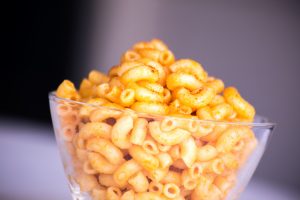A consumer that filed a class action lawsuit against Buffalo Wild Wings earlier this year is now turning his compensation efforts toward a home goods company. In the restaurant lawsuit filed in March, the plaintiff, Aimen Halim, claimed that Buffalo Wild Wings falsely advertises its boneless buffalo wings as “wings,” when the meat is actually the white meat of a chicken. In this lawsuit, Halim claimed that had he known that the boneless wings were not deboned wing meat and more resembled chicken nuggets, he might not have ordered that particular item, or he would have paid less.
Continue readingTag Archives: deceptive marketing
Dark Patterned Future
Due to the implementation of questionable business practices, the Federal Trade Commission (FTC) has taken legal action against Amazon. Allegedly, to convince customers to enroll in Prime subscriptions, the company has engaged in trickery. The effort has apparently been ongoing for years and has led to the positive outcome of increased sales for the company. In the lawsuit filed by the FTC, the agency claims that Amazon not only uses deceptive techniques for attracting customers to the Prime subscription, but also makes it difficult for existing customers to cancel their subscriptions. Some are not even aware that the subscriptions are recurring and are renewed without their consent.
Continue readingUSC Learns the Hard Way
A recent lawsuit filed against the University of Southern California (USC) and 2U, Inc., a publicly traded company, alleges that the institution of higher education provided limited information and statistics to U.S. News & World Report. In order to draw in prospective students to online programs, USC presented favorable rankings, which were only accurate for one in-person program. According to the lawsuit, USC has established a history of supplying misleading information to U.S. News & World Report and allegedly withheld data that might have influenced a lesser rank. USC is placing blame on the dean of the Rossier School of Education. Continue reading
Cooking Up a Class Action
Within the realm of seemingly frivolous lawsuits, the recent claim filed by a Florida mac and cheese consumer may offer valid points of contention. According to her argument, under the guise that the food is prepared in 3.5 minutes, Kraft Heinz Company has sold a competitively higher priced selection of mac and cheese cups to its consumers. For eight 2.39 ounce cups, the product, Velveeta’s Microwavable Shells and Cheese Cups, is valued at $10.99. The consumer contends that, had she known the true timeframe of food preparation from start to finish, she might not have elected to purchase a pricier mac and cheese option. Continue reading
Lawsuit Fails to Pacify Consumers
Following complaints of toxic metals in baby food, the US House of Representatives Subcommittee on Economic and Consumer Policy issued a request for manufacturer testing data, which indicated levels of arsenic, lead, cadmium, and mercury. Although the report was requested in November 2019, one of the manufacturers, Beech-Nut, just recently issued a recall on June 9, 2021. Due to the discovery of high levels of naturally occurring inorganic arsenic, Beech-Nut is permanently discontinuing its infant rice cereal. As the FDA does not restrict the levels of heavy metals in baby food, this recall was voluntary. Consumers, however, are not satisfied with the recall and have filed lawsuits, claiming the heavy metals in baby food lead to issues in infant brain development. Continue reading




